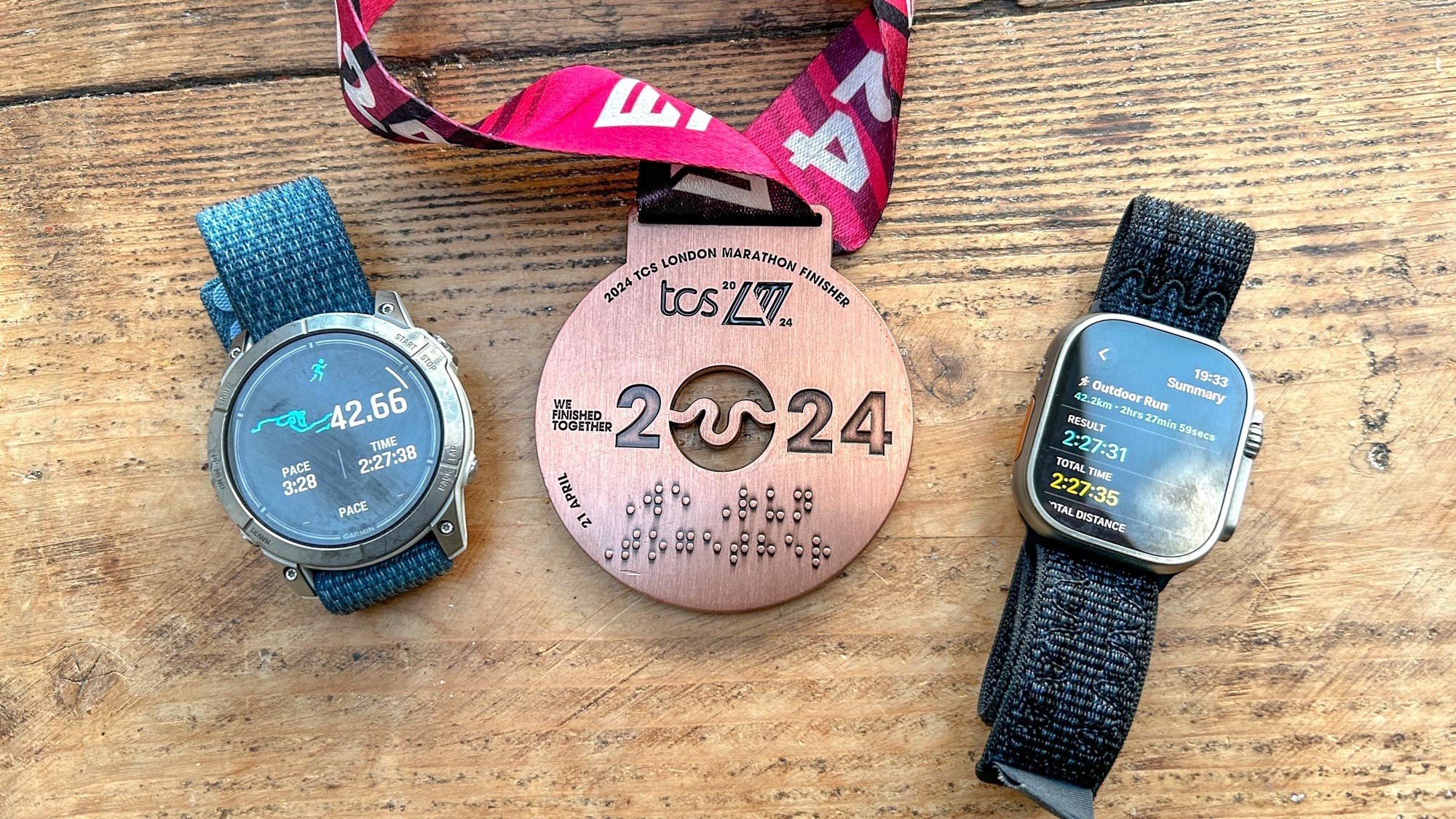
I’ve run 13 marathons and one thing I’ve noticed since my first in 2016 is how much better the best running watches have become. Two of the best available are the Garmin Epix Pro and the Apple Watch Ultra 2 and I used both for my marathon training block for the London Marathon this year, where I ran a PR of 2:27:34.
Both are among the most impressive watches I’ve tested, with attractive, durable designs and all the features you need to track your training. Both also tread the line between sports watch and smartwatch, though the Apple Watch Ultra 2 leans smarter and the Garmin Epix Pro sportier.
The Apple Watch Ultra 2 is the cheaper watch at $799.99, with the Garmin Epix Pro costs from $899.99 to $1099.99 depending on the size of watch you opt for (42mm, 47mm or 51mm) and the materials used. Over the course of my long-term testing some big differences between the two watches started to tell, with each having their pros and cons.
The bigger battery on the Garmin is convenient
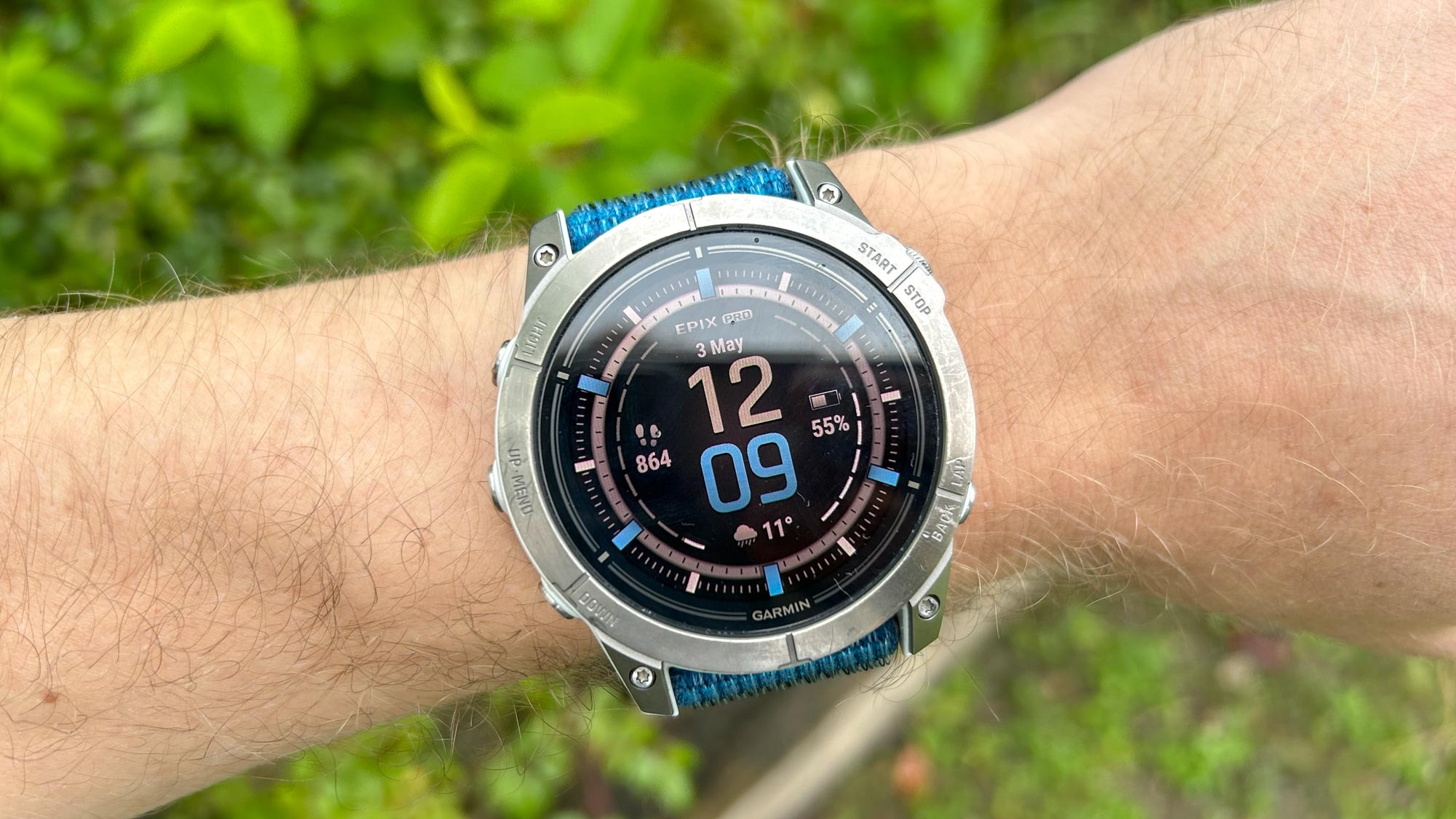
One of the most obvious differences between the watches is battery life. The Epix Pro 51mm watch I was testing lasted 10 days on a charge, even with the AMOLED screen set to always-on, whereas the Apple Watch Ultra 2 lasts two days max.
Having to think about charging the Apple Watch Ultra 2 so regularly is an annoyance. It does charge quickly and if you’re in your regular routine you can find times to top it up easily enough, but on a trip away it was a hassle to think about and the Epix Pro’s long battery life is a lot more convenient. I’ve also tested the smaller 47mm version of the watch, and that lasts four to five days.
Garmin's training analysis is useful in long training blocks
The Garmin Epix Pro is also a clear winner in the training analysis it offers, with features like training readiness helping me to judge how fatigued I was during the long weeks of marathon training, and how my fitness was improving. The Apple Watch Ultra doesn’t offer any native training analysis, and while third-party apps like Training Today and Athlytic try to fill in the gaps, I found the accuracy and depth of detail you get from the Garmin superior.
The GPS and heart rate accuracy is a wash, but Garmin's pace stats are better
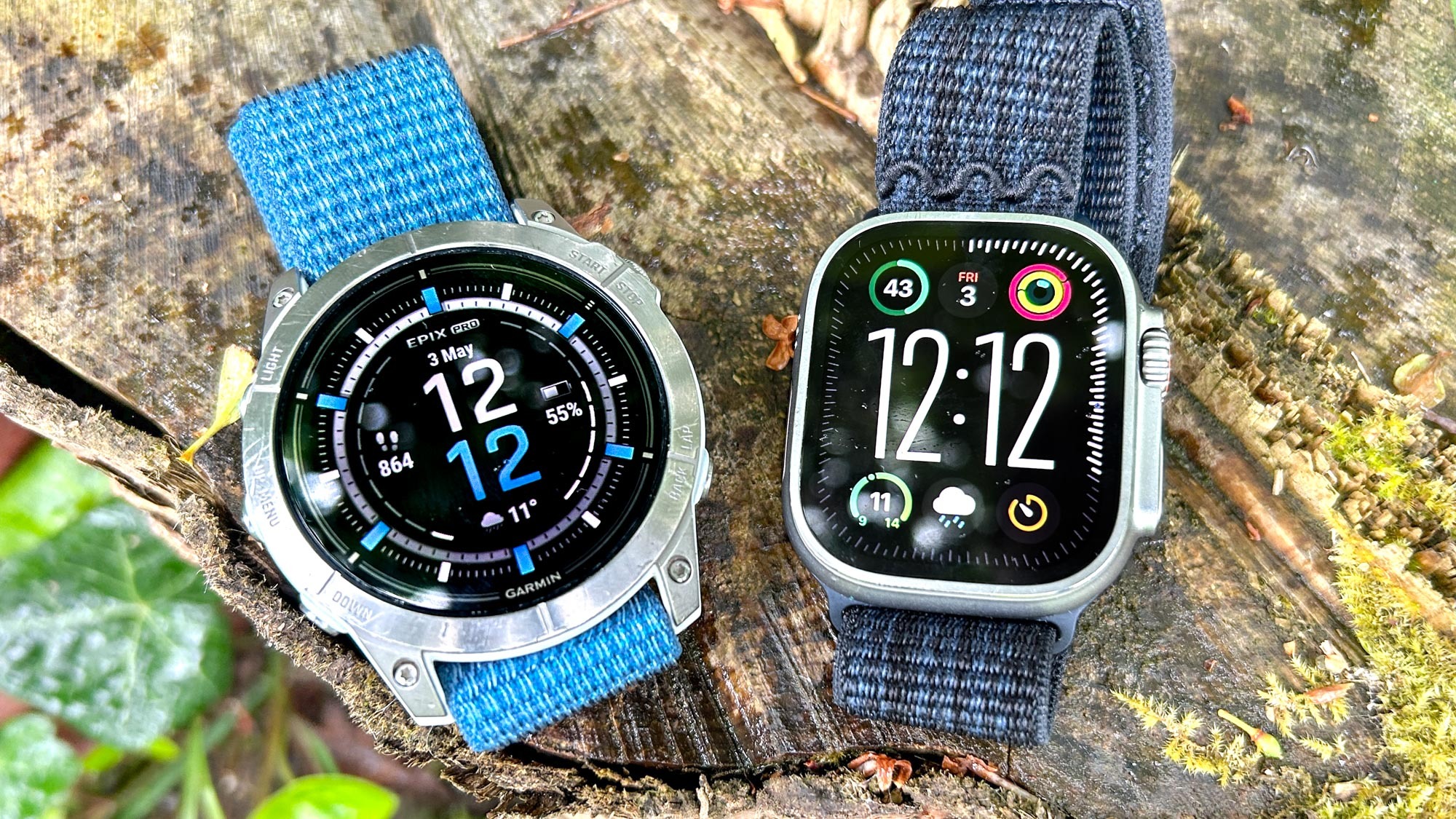
I was impressed with the GPS accuracy on both watches throughout my testing, and while both struggled with the section of the London Marathon around Canary Wharf, they are both among the most accurate running watches I’ve tried. I did find pacing my runs easier with the Garmin Epix Pro though. I use lap or split pace for this, and it jumped around a lot more with the Apple Watch Ultra 2, whereas the Garmin’s pace was more even and accurate.
On race day I used a distance and pace target on both watches to give a rough idea how far ahead or behind my goal time of 2:27:59 I was. The Apple Watch Ultra 2 was more accurate for overall distance during the London Marathon, though the Garmin Epix Pro was also very good and I mainly used the Garmin for pacing each kilometer I ran, as well as checking the time at the mile and kilometer markings on the course.
The heart rate accuracy was less impressive for both, however, and after experiencing regular errors on my runs in training I paired a Polar H10 chest strap to both watches to get more accurate heart rate information during my runs.
The Apple Watch is much smarter
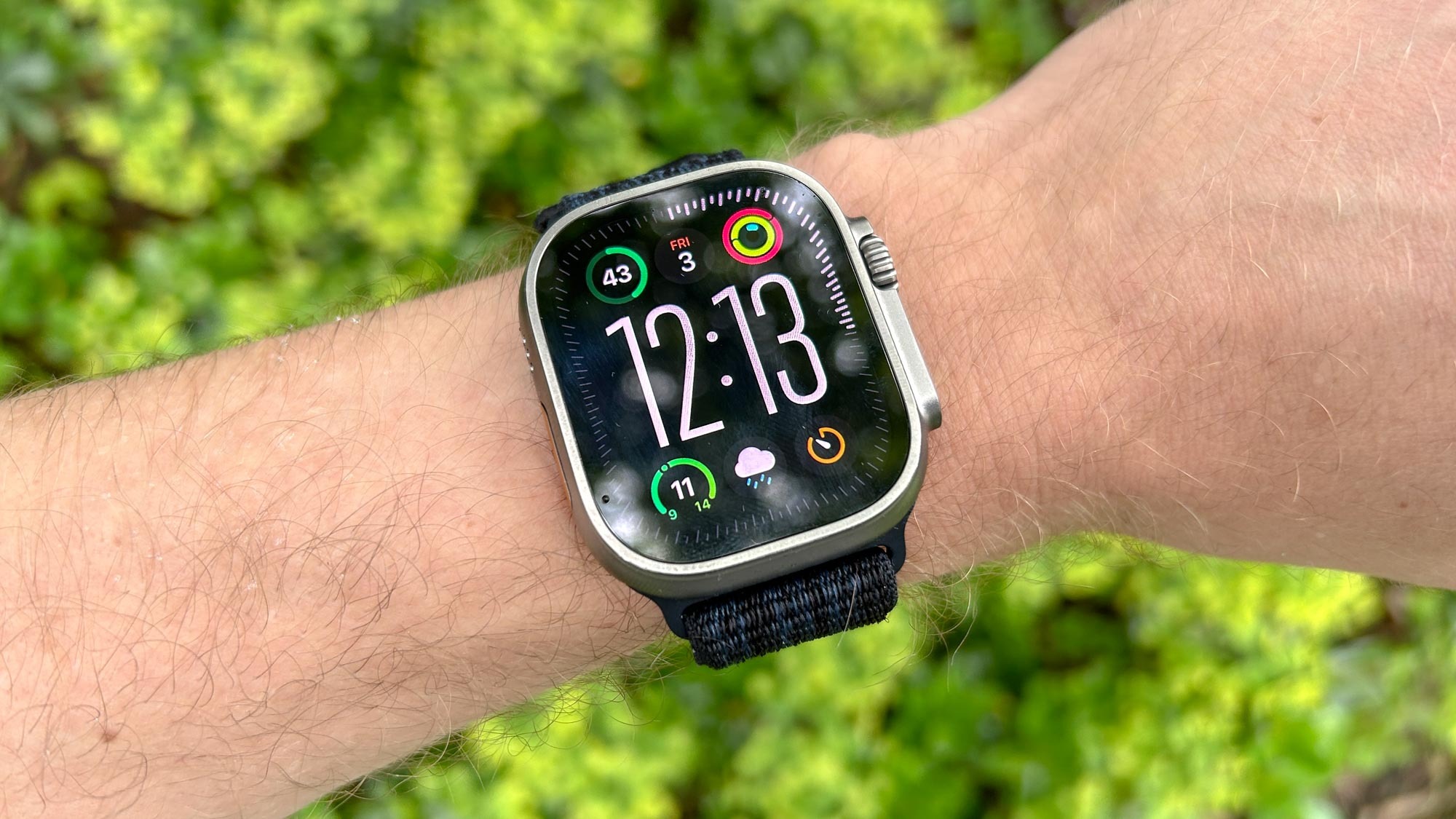
One area where the Apple Watch Ultra 2 wins comfortably is smartwatch features. The Garmin Epix Pro has NFC payments through Garmin Pay, and can store music and link up with Spotify, Deezer and Amazon Music premium accounts to transfer playlist wirelessly, but the Apple Watch Ultra 2’s smart features are far more extensive.
For one, the App Store is full of useful apps for sports tracking and general life, whereas Garmin’s Connect IQ store has very few useful apps. The Apple Wallet app can also store more than just payment cards — I found it invaluable for storing all the supermarket loyalty cards you now need in the UK to get discounts. The Apple Watch Ultra 2 also offers more customization of the watch face and is a slightly more attractive watch to wear day-to-day.
Garmin's native sports tracking is better, but Apple has more apps
The native Workout app on the Apple Watch is now very good, but one advantage of Apple’s App Store means that if you find the native tracking on the watch lacking in any way, then there are excellent running apps you can use instead. WorkOutDoors is one I've used for years and it offers a huge amount of data field customization and has maps you can use for navigation.
Since there is no training analysis on the Apple Watch that uses data from one particular app, you can use a different app for your run each day to suit your needs — I like Footpath for navigation, the native Workout app for most runs and structured workouts, and WorkOutDoors for when I want to see both my running stats and a map during the run.
The advantage of the Garmin Epix Pro here is that everything is baked into the native tracking on the watch, including the best navigation features you can find on a sports watch. It’s easy to create routes in the Garmin Connect app and sync them to the watch, and you get details on the elevation of your route, and useful extras like ClimbPro, which breaks out the climbs and descents on your route individually to help you judge your effort on long uphills in particular.
Garmin's flashlight is very handy
I like the design of both watches, even if they are both quite large. I found them comfortable to wear 24/7 and the bright screens on both are easy to read inside and out. One edge the Epix Pro does have is a built-in flashlight on the top of the watch. I found this invaluable each night when tending to a crying baby, and those with more adventurous lifestyles who are often outdoors after dark will find having an extra flashlight on their wrist at all times very useful.
Apple's activity and sleep tracking is better
Throughout my testing I found that the Apple Watch Ultra 2 was a better fitness tracker. The activity tracking on the Apple Watch is more engaging and the calorie counts were also more accurate for me, which helped ensure I ate enough during heavy training periods.
While the Garmin Epix Pro offers more detailed sleep tracking, the Apple Watch’s was more accurate for me. Garmin’s sleep tracking in general often classifies periods where I’m awake but still as light sleep, and it also missed times in the night when I had to get up and see to the baby, meaning the overall sleep duration was routinely overestimated. The Apple Watch Ultra 2 was better at logging the correct amount of time asleep, though the downside is if you’re using it to track sleep, you have to find a time to charge it in the day.
Verdict: I'd use the Garmin next time
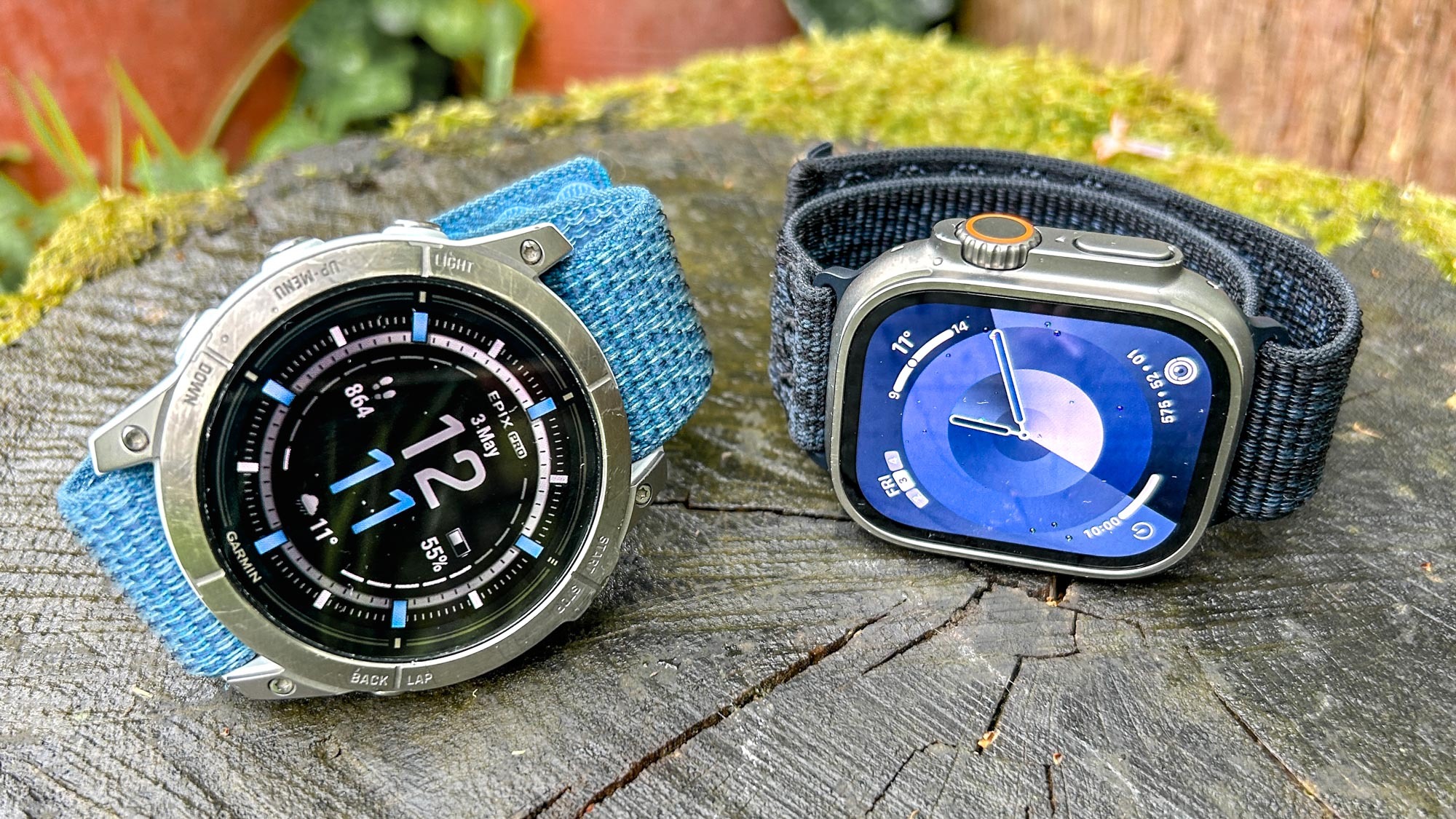
After a long and successful marathon training block I was impressed by both watches, but it’s the Garmin Epix Pro I’d use for my next attempt at a marathon PR. The battery life, more reliable pace accuracy and training analysis are all important features for me, more so than the extra smarts on the Apple Watch Ultra 2, and the sports tracking in general is a little easier to use on the Garmin.
However, using the Apple Watch Ultra 2 for a hard training block showed me that it is not to be taken lightly as a sports watch. It is a serious training tool, with the excellent smartwatch features it has then helping it to stand out from other sports watches. If you’re not worried about regular charging or training analysis, the Apple Watch Ultra 2 will cover your sporting needs very well.







